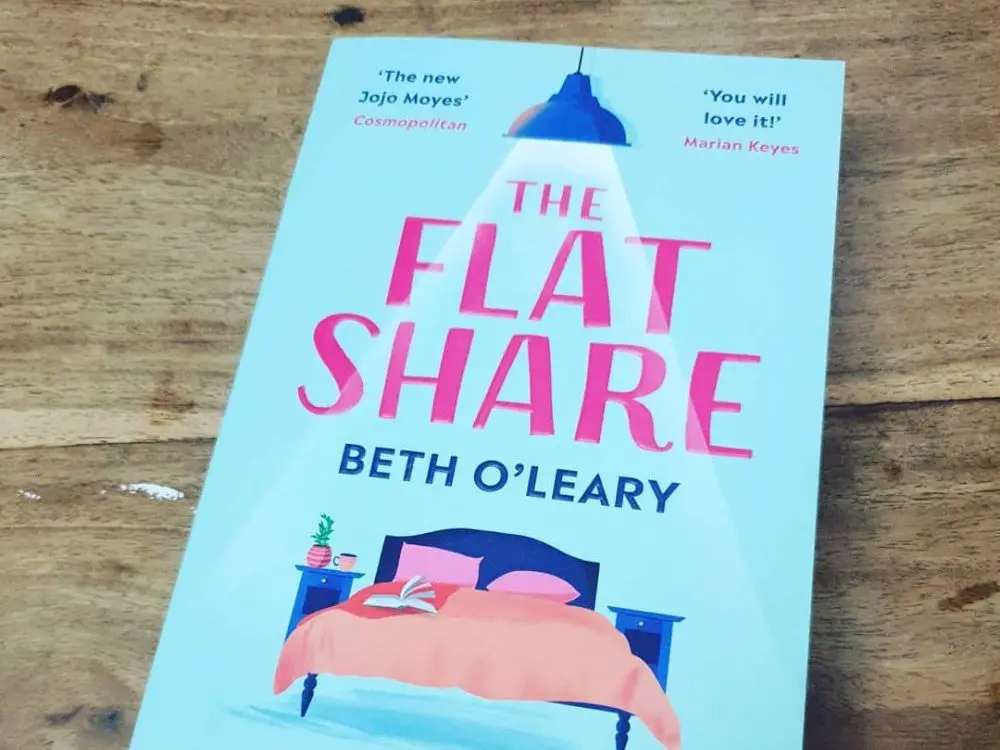When living with her boyfriend who frequently worked nights, Beth O’Leary wondered what it would be like to live with someone you had never met; this is when the concept for “The Flatshare” was born. Following two Londoners who share an apartment and bed but have never met in person, the novel explores love from both a distance and close-up.
However, it’s not just about romance: O’Leary tackles emotionally abusive relationships and wrongful felony convictions within this love story. “The Flatshare” challenges the unspoken ideals of the romance genre as it digs deeper into human experiences, showing that stories about love should also have real heart to them.
The novel, released in May 2019, follows Tiffy and Leon, who narrate their story in alternating chapters. Tiffy is an editorial assistant at a small publishing firm and is desperately in need of a new place to stay after breaking up with her emotionally abusive boyfriend. She struggles to find a place she can afford, until she sees Leon’s ad. Leon works nights as a hospice nurse and is seeking someone to live in his flat so he can save up for his younger brother’s legal expenses.
Tiffy’s friends and Leon’s girlfriend warn them against the arrangement, but neither of them seems particularly uncomfortable with the idea of one person inhabiting the space during the day and the other at night. So, Tiffy moves in.
The two are able to coexist without any real contact until they begin to leave notes all over the shared space for each other and form a friendship. After living together without meeting for weeks, Tiffy oversleeps one morning, leading to an awkward first interaction that changes the situation entirely.
From the start, O’Leary draws readers in with her ability to tell a cohesive story while switching her writing style back and forth between Tiffy and Leon. Tiffy’s narration is bubbly and heartfelt, using rich description and complex emotions, while Leon’s feels controlled and a little timid as he frequently uses incomplete sentences and quotes dialogue like a transcript. The two methods of storytelling provide an ever-present and accurate portrayal of each distinct personality, giving the chapter trade-offs a sense of ease and clarity.
O’Leary makes it easy to feel Leon’s unease when interacting with most people or Tiffy’s enthusiasm (or lack thereof) for her job, while sneaking small spurts of wisdom in at just the right moments. “Life is often simple, but you don’t notice how simple it was until it gets incredibly complicated,” she writes in one of Tiffy’s chapters. “Like how you never feel grateful for being well until you’re ill, or how you never appreciate your tights drawer until you rip a pair and have no spares.” It’s details like this that breathe so much life into the characters — not only the main pairing, but the supporting cast as well, who actually move the story along without taking away from the narrative. The bright world of the novel is tangible from the first chapter, allowing readers to fully immerse themselves in it right away.
“The Flatshare” stands apart from its peers in the romance genre in those ways, but it also fits in with the crowd by providing predictability, cheesy moments and glossed over plot points, like many romance stories on the page or screen. It would be wrong to pick up a romance novel with the assumption that the couple on the cover doesn’t get together in the end, but one could argue that these kinds of stories are for the journey and not the predetermined destination.
Yet, the way that O’Leary guides her characters to their happy ending deconstructs another side of the romance genre, where female protagonists are manipulated and emotionally abused by partners. Tiffy’s past with her ex-boyfriend isn’t something she’s able to brush off nonchalantly without addressing, no matter how much she denies any abuse in the beginning of the story.
As she gets further away from the relationship, it sticks with her and her future with Leon in subtle ways — mistrust, anxiety and low confidence — and more obvious ones, like when said ex actually shows up at her door. O’Leary is careful to not brush anything under the rug when dealing with this theme, and instead guides readers through what emotional abuse is and how Tiffy works through her past in therapy. While “The Flatshare” isn’t primarily a story about dealing with the after-effects of emotional abuse, O’Leary tactfully uses this story line to develop Tiffy’s character and add a depth that isn’t always seen in the romance genre.
“The Flatshare” attempts this same depth but falls short in the minor plot line dedicated to Leon’s younger brother, Richie, who has been wrongfully imprisoned for armed robbery. Some parts of the story make its resolution feel too simple, too easy. Richie sends Tiffy a letter detailing the entire ordeal despite never meeting her in person, and in a perfect coincidence, one of Tiffy’s best friends happens to be a lawyer that can take on the case for little to no financial compensation.
While there is a clear attempt to add even more profundity to the novel by suggesting that racial profiling and poor legal representation led to his conviction, this plot line lacks the genuineness of the other story lines and doesn’t provide as satisfying of a payoff. While this is unfortunate for the overall effect of the novel, it luckily doesn’t take up a lot of space or stand out as a glaring misstep, allowing readers to focus mainly on what O’Leary does well.
Although O’Leary doesn’t hit the mark with Richie’s story, the rest of her storytelling is a prime example of the development and depth that some may overlook in the romance genre, which is usually ignored or ridiculed. Romantic comedy films are mocked, looked down upon and called “chick flicks,” as though the insinuation that anything made and enjoyed specifically by women must be inherently inferior to anything created for men or the general population.
Romance novels are seen as trashy and brain-rotting, or are plainly not taken seriously as works because of their primary audience and their — mainly female — writers. “The Flatshare” proves that romance novels are not always as simple or poorly executed as critics of the genre would like to believe; they can instead offer readers a reading experience that is both entertaining and stimulating.
O’Leary draws readers in with the premise of a playful and fresh debut, which she delivers. However, “The Flatshare” gives much more than that. Each layer of the novel, from every kind of love to the strength we find within ourselves, works to create a well-rounded reading experience that leaves readers wanting, but not needing, more.

















